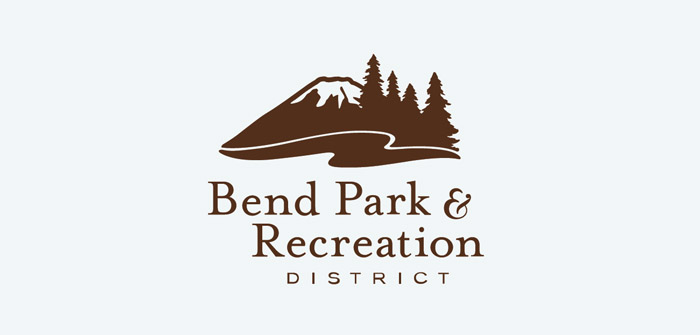Bend Park and Recreation District (BPRD) is planning for recreational access and riparian habitat restoration at parks along the Deschutes River, and asked for public input for a preliminary list of possible projects. Survey results are in and nearly 1,000 residents shared input that is being considered by BPRD staff and its board of directors.
Bend Park and Recreation District has 16 parks along the Deschutes River, which include 25 designated access points and over 94 user-created access points to facilitate play in the water. The popularity of river use has resulted in impacts such as trampled vegetation, user-created access paths and erosion along the riverbank. With the river plan, the district is taking a proactive approach to identify and recommend river access and habitat restoration projects, likely over the next ten years, with a combination of district general funds partnerships and grants.
To gain public input on the early list of possible projects, a bilingual online survey was open for three weeks in February, email comments were accepted and three virtual public meetings were held in English and Spanish languages. Summary survey results are available in English and Spanish languages.
“We are fortunate to have passionate outdoor recreation and environmental stewards in our community who are engaged in this planning effort,” said Sarah Bodo, district planner and project manager. “The draft project list is part of the continued conversation, and will likely evolve as we receive additional input from the board, community members, focus group members and staff.”
BPRD received 980 survey responses. Of responses, 41 people either took the Spanish survey or identified as Latinx in the English survey. While BPRD is pleased with the number of responses and the distribution of respondents’ home locations, the Latinx and Spanish-language survey response remains low in relation to Bend’s overall Latinx population (4 percent of survey responses vs. 9 percent of the population).
“We are committed to working with underserved communities at deeper levels to encourage diverse representation in our planning efforts,” added Bodo.
Survey Results
The survey results included a number of findings including:
- Neighborhood representation: Survey respondents represented all 14 Bend neighborhoods; those who had the most respondents included River West (19 percent), Southwest Bend (12 percent) and Southern Crossing (10 percent). For the respondents who took the survey in Spanish or who identified as Latinx, the top three neighborhoods were Southwest Bend (17 percent), Old Farm District (12 percent) and Summit West (12 percent).
- Activities: When asked which top three activities respondents enjoyed at river parks, 84 percent chose trail walking, running or biking; 50 percent chose paddling the river; and 31 percent chose visiting a park along the river.
- Parks visited: The plan focuses on 14 riverfront parks and when asked which parks survey respondents frequent for the activities noted in the bullet above (and asked to check as many as apply), the top three most visited parks were Farewell Bend Park (77 percent), Riverbend Park (70 percent) and Drake Park (64 percent).
- River access satisfaction: When asked about satisfaction with river access, 75 percent indicated they were satisfied, 13 percent indicated they were dissatisfied and 12 percent had no opinion.
Possible Projects and Timing
Completion of the proposed projects in the plan is expected to take a decade or more to accomplish. While some of the projects can be done through collaboration and volunteer efforts, many of the larger projects are dependent upon additional design considerations, environmental permitting approvals and future funding availability.
Columbia Park
The Columbia Park watercraft access point has severely eroded since it was constructed in 2012, and the erosion is impacting the trail and led to a closure in 2020. The survey indicates that 54 percent of respondents agree with the permanent closure of the two access points. However, the district received significant public input from neighbors, as well as new information from the City of Bend on the possibility of installing bridge jumping deterrents on the proximate bridge.
Based on input, staff is proposing two projects — (1) permanently close downstream user-created access points and improve vegetation; and (2) improve the existing designated access point when use can be reopened after temporary closure.
“We expect the closure will continue through at least this summer while safety concerns are addressed. We will also have to secure funding and complete design and permitting for a project,” said Bodo. “A compromise to facilitate safer access and to improve bank and riparian habitat will be the best of both options in the longer term.”
Miller’s Landing Park
At nearby Miller’s Landing Park, a possible project is proposed to close and revegetate the northern access point, and, concurrently, make improvements to the boardwalk access. Sixty-eight percent of survey respondents agreed with this project, 16 percent disagreed with this project and 16 percent had no opinion or didn’t know.
Dogs Off-Leash Area
Access options for dogs were also addressed in the survey and the virtual public meetings. The feedback was mixed and included strong support both for and against dog off-leash river access. The survey inquired about the potential for an off-leash dog water access at Riverbend Park. Fifty-eight percent of respondents agreed with this project, 23 percent of respondents disagreed with this project and 20 percent were unsure or had no opinion.
The existing river access area is located adjacent to Riverbend Park, on private property, currently leased by the district. The temporary use of the leased property is expected to end and the existing river off-leash area will no longer be available for lease by the district.
Next Steps
The project team anticipates that the plan will be completed by this fall. The public will have two additional opportunities to provide feedback on the potential projects and overarching plan before the plan is finalized and adopted by the board of directors.
BPRD received a grant for technical assistance from the National Park Service, Rivers and Trails Conservation Assistance program (NPS-RTCA) for the completion of the plan. Together with NPS-RTCA, the district planning team convened a focus group with representatives from local recreational and environmental organizations and agencies to seek their input.
For more information about the river access and habitat restoration plan or to sign up for email updates, visit the Deschutes River Access and Habitat Restoration Plan project.



